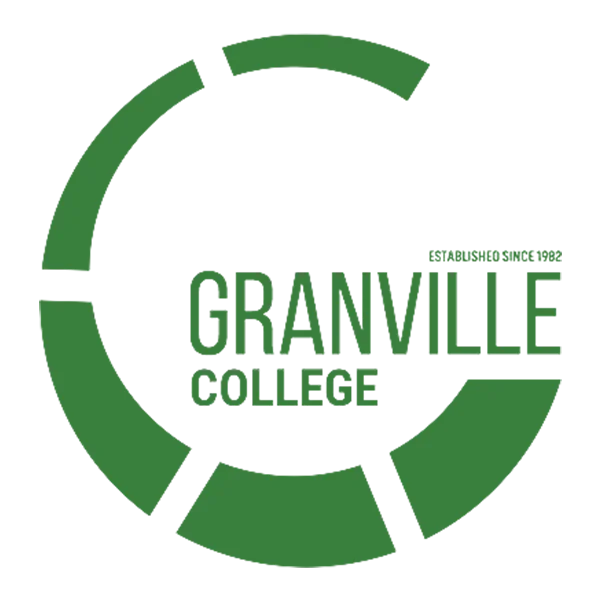Let’s be honest – the job market feels overwhelming right now. With AI reshaping entire industries, economic uncertainty creating hiring freezes, and employees demanding more flexibility than ever, it can feel like the rules of work change daily. If you’re considering a career in Human Resources, you might wonder: Is this the right time to enter a field that’s constantly adapting?
The answer is absolutely yes.
In fact, there’s never been a more critical time for skilled HR professionals. While technology automates many tasks, the human element of work becomes increasingly valuable. Organizations need HR professionals who can navigate complexity, build authentic connections, and help companies thrive amid constant change.
The Canadian job market reflects this demand. With unemployment among skilled HR professionals at just 3.6% as of May 2025, and 69% of HR managers planning to hire more contract professionals in the second half of 2025, the opportunities are substantial for those with the right skills.
5 Human Resources Trends Reshaping 2025
1. AI Integration and Human-Centric Leadership
Artificial intelligence is no longer a future trend—it’s the current business reality, transforming how organizations function at every level. But this isn’t about replacing humans; it’s about enhancing human capabilities.
What’s changing: HR departments are using AI for recruitment screening, employee experience personalization, and predictive analytics for workforce planning. AI-powered chatbots provide instant answers to HR queries, while learning recommendation systems suggest personalized development opportunities based on career aspirations.
The human element: As organizations move toward more automated processes, investing in human skills development becomes essential for building strong, adaptable, and human-centered leaders. Skills like empathy, creative problem-solving, and authentic communication become more valuable, not less.
2. Strategic Workforce Planning Beyond Staffing
Traditional HR focused on filling positions. Modern HR professionals must think strategically about the future of work itself.
While 73% of surveyed organizations conduct operational workforce planning, only 12% of US HR leaders engage in strategic workforce planning with at least a three-year focus. This gap represents a massive opportunity for skilled professionals.
Key responsibilities include:
- Analyzing skills gaps and future needs
- Planning for technological disruption
- Creating succession strategies for critical roles
- Aligning workforce capabilities with business strategy
3. Employee Experience and Wellbeing Focus
Nearly 20% of surveyed employees report dissatisfaction with their employer, yet only 7% have clear plans to leave their jobs – suggesting a growing risk of quiet quitting.
What employees really want:
- Job security (39% cite this as top retention factor)
- Work-life balance (34%)
- Strong relationships with colleagues (33%)
HR professionals are partnering with internal communication teams to craft narratives that resonate deeply, focusing on themes like company culture, purpose, and the human impact of their work.
4. Skills-Based Development and Continuous Learnin
Companies that prioritize upskilling, reskilling, and continuous learning are laying the groundwork for antifragile teams. The traditional career ladder is being replaced by career lattices, where employees move horizontally and diagonally based on skills and interests.
Modern approach includes:
- Identifying internal talent for new roles
- Creating learning paths that align with business needs
- Using data analytics to predict skills gaps
- Building mentorship and knowledge-sharing programs
5. Data-Driven Decision Making
HR analytics technology can demonstrate the value of human resources as part of an effective, modern HCM strategy. HR professionals increasingly need to speak the language of business metrics.
Key areas include:
- Measuring employee engagement and predicting turnover
- Analyzing recruitment effectiveness and time-to-hire
- Tracking learning program ROI and skill development
- Using predictive analytics for workforce planning
The Canadian HR Job Market: Strong and Growing
The numbers paint a compelling picture for HR careers in Canada:
Employment outlook: The outlook for human resources professionals is positive, as many companies have been increasing the resources dedicated to attracting and retaining talent.
Salary expectations: Entry-level HR coordinators can expect to earn between $50,000 to $60,000 per year, while experienced professionals can earn $70,000 to $100,000 or more. Senior HR roles often surpass the $100,000 mark.
Growing specializations: Specialized areas within HR, such as HR analytics and HR technology, are gaining traction, offering unique opportunities for professionals with expertise in these areas.
Regional opportunities: Salaries may be higher in metropolitan areas with higher cost of living, such as Toronto, Vancouver, and Calgary.
Future projections: According to recent projections by COPS, job opportunities in HR are expected to total 48,600 by 2023, with the expected number of job seekers to be 46,100.
Building Your HR Career Foundation
Success in modern HR requires both traditional people skills and new technological competencies:
Essential qualifications:
- A bachelor’s degree and the Certified Human Resources Professional (CHRP) designation are assets for both securing work and career advancement.
- Knowledge of system applications such as Human Resources Information Systems (HRIS) and Human Resource Management Systems (HRMS).
Emerging skills in demand:
- Data analysis and HR metrics
- AI tool integration and management
- Change management and organizational development
- Employee experience design
- Strategic workforce planning
Ready to Shape the Future of Work?
The Human Resources field offers more than job security – it provides the opportunity to meaningfully impact how people experience work. As organizations navigate technological change, economic uncertainty, and evolving employee expectations, skilled HR professionals become essential partners in business success.
Whether you’re starting fresh or transitioning from another field, HR education has never been more accessible or relevant. Programs that combine traditional HR fundamentals with modern technology skills prepare you for immediate impact in this growing field.
Take the next step in your HR career journey. Granville College’s Human Resources Management program combines practical skills training with industry-recognized credentials. Our curriculum covers everything from employment law and recruitment strategies to HR technology and data analytics – preparing you for the HR roles of today and tomorrow.
With flexible scheduling options, experienced instructors, and strong industry connections in Vancouver and Surrey, we make professional transformation achievable. Your future in Human Resources starts with the right education foundation.
Contact Granville College today to learn more about our Human Resources Management program and discover how you can build a meaningful career helping organizations and people thrive.
Frequently Asked Questions (FAQs)
-
How long does it take to complete an HR program?
Most HR diploma programs can be completed in 12-18 months. At Granville College, our Human Resources Management program is designed to get you job-ready efficiently while providing comprehensive coverage of essential HR competencies.
-
Do I need prior HR experience to enroll?
No prior HR experience is required. Our programs are designed for career changers and new professionals, providing foundational knowledge while building advanced skills needed in today’s job market.
-
What’s the difference between HR generalist and specialist roles?
HR generalists handle multiple HR functions across recruitment, employee relations, and policy administration. Specialists focus on specific areas like talent acquisition, compensation and benefits, or HR analytics. Many professionals start as generalists then specialize based on interests and market demand.
-
Are HR jobs really in demand in Canada?
Yes, the demand is strong. With unemployment among skilled HR professionals at just 3.6% and companies increasing HR resources to attract and retain talent, opportunities are abundant for qualified candidates.
-
What technology skills do modern HR professionals need?
Modern HR professionals should be comfortable with HRIS systems, data analysis tools, and increasingly, AI-powered HR platforms. Understanding how to leverage technology for recruitment, employee engagement, and workforce analytics is essential.
-
Where can I study Human Resources Management in the Vancouver area?
Granville College offers a comprehensive Human Resources Management program at both our Vancouver and Surrey campuses. Our curriculum is designed by industry experts and includes hands-on experience with the tools and techniques you’ll use in your HR career. Contact us to learn more about enrollment and how we can help you launch your HR career.





